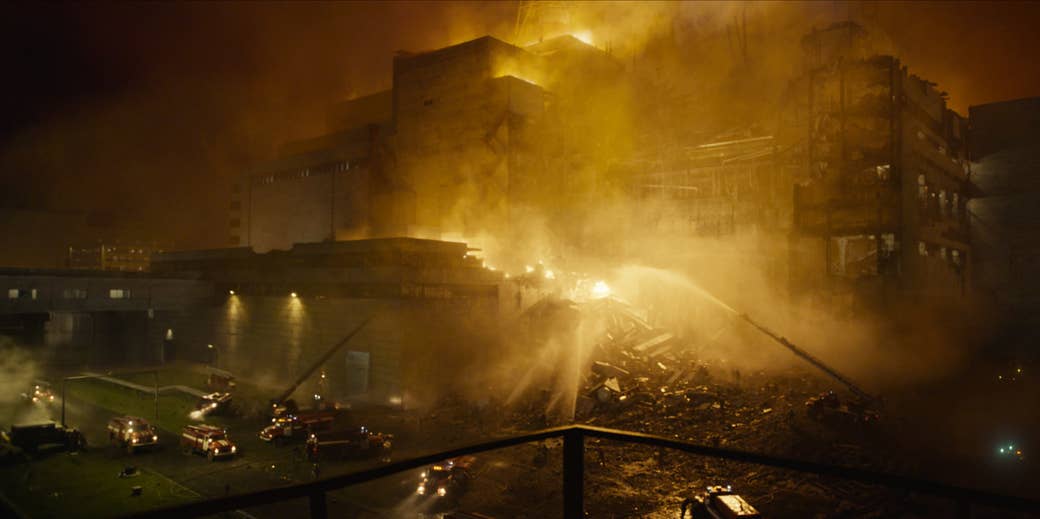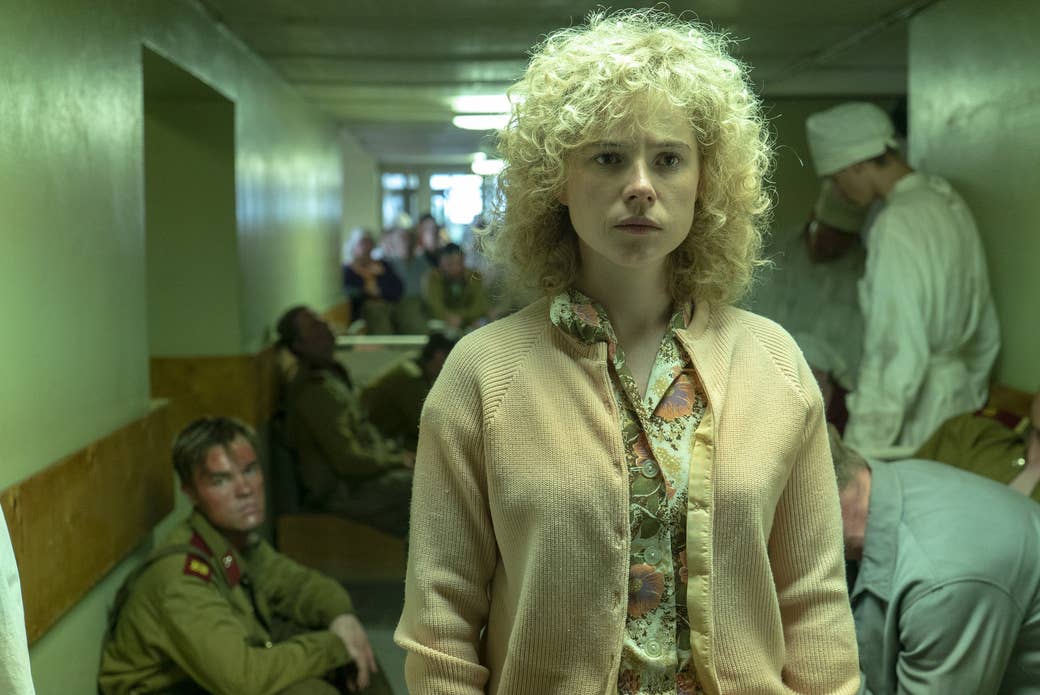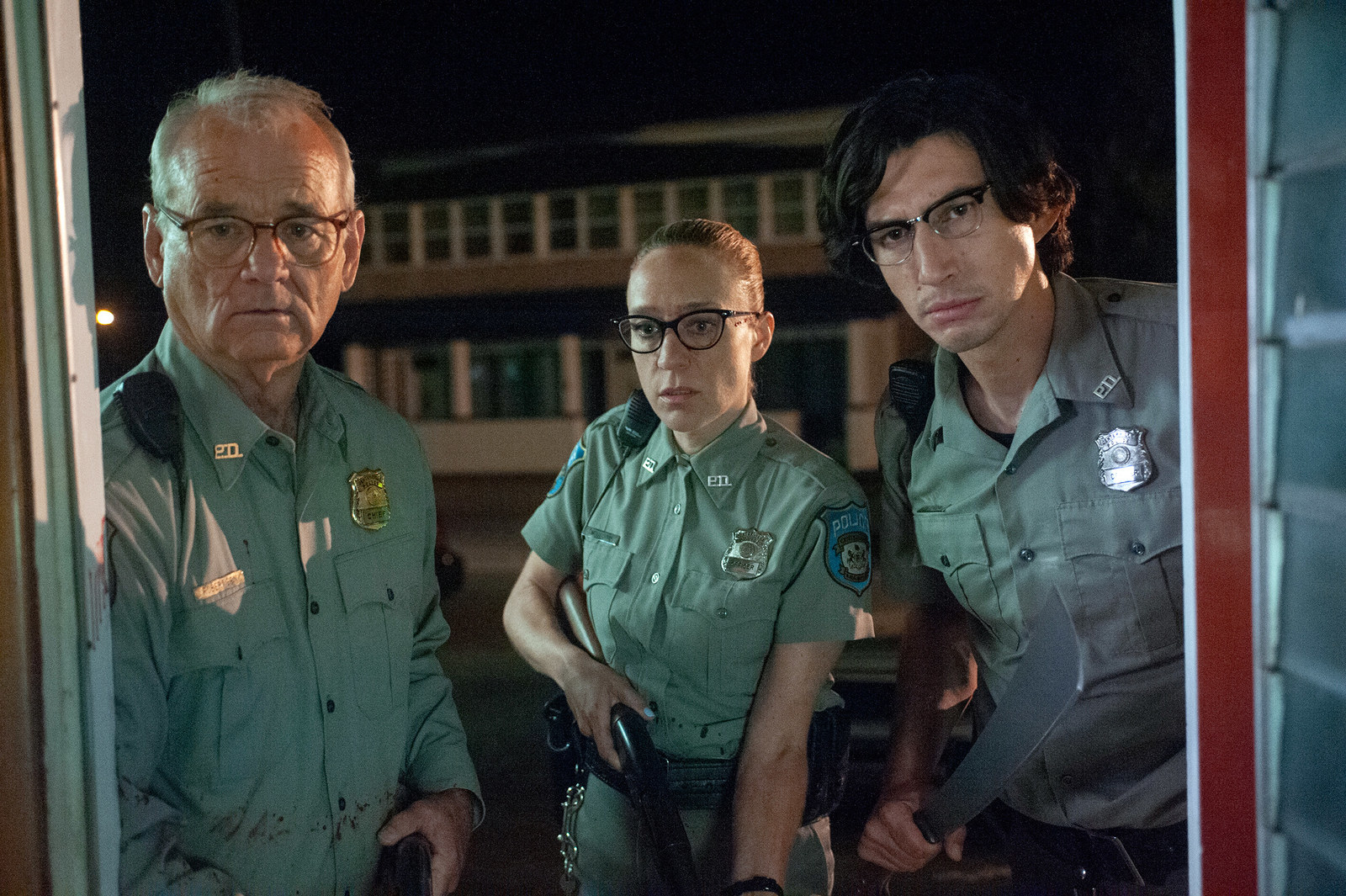
A tweet about influencers flocking to Chernobyl to take selfies made the rounds the other day, quickly racking up thousands of retweets and at least as much eyerolling. It didn't seem to matter that only one of the screengrabbed accounts actually had a legit influencer-worthy following, and that two seemed to belong to everyday tourists from different parts of Eastern Europe. The fourth photo was such a doozy that it cast a disreputable pall over the others — even though a quick look over the rest of the account, which belongs to a woman who writes in Russian, suggests it was a calculated grab for internet notoriety. She appears in two shots, in lingerie and sheer coveralls that look a little like a hazmat suit — a radioactive thirst trap so hilariously tasteless it deserves a round of applause. Hers is the only one of these photos that hasn't been deleted following the deluge of "kids these days" scorn the viral tweet prompted.
Everyone cares a lot about the 1986 Soviet nuclear disaster at the moment, thanks to HBO's miniseries Chernobyl, which ended June 3. Over the course of its five installments, the ratings for the US/UK coproduction kept ticking upward until it qualified as an unexpected phenom, generating attention for the way it vaulted to the top of the TV ratings chart on IMDb (the same site that firmly declares The Shawshank Redemption the greatest movie of all time). Visits to the Chernobyl Exclusion Zone have reportedly surged since the series began, which is probably what prompted Chernobyl creator Craig Mazin, upon seeing the photos, to urge the show's fans to behave. "If you visit, please remember that a terrible tragedy occurred there," he tweeted. "Comport yourselves with respect for all who suffered and sacrificed."
It was the kind of well-intentioned statement that feels weirder the more you consider it. Mazin is American, after all — a screenwriter whose past work includes the second and third Hangovers, the third and fourth Scary Movies, and the Melissa McCarthy comedy Identity Thief — while three of the people he's indirectly chiding, whom the internet has made open targets, are not. One is a student who was born in Ukraine and who told Taylor Lorenz at the Atlantic, "Chernobyl made a massive impression on me. ... So I made a big Instagram post about it describing my feelings." (The viral tweet cropped out her caption, which called Chernobyl "an eternal monument to the horrid cruelty of the Soviet regime.")
Ukraine officially opened Chernobyl up to visitors almost a decade ago, well before the miniseries was a twinkle in Mazin's eye, and the locals running tours didn't get the missive that they should behave with an appropriate degree of solemnity either. When a friend of mine went in 2016, she and her tourmates were shown the trailer for the 2012 horror movie Chernobyl Diaries, starring Jesse McCartney, on their bus.
Mazin may have enshrined the Chernobyl disaster on premium cable in 2019, but he doesn't have any more ownership over it than the viewers now rushing to defend the sanctity of the site online do. But with renewed interest in the 33-year-old disaster has come a curious sense of moralizing proprietorship — which makes you wonder what, exactly, people are getting from the miniseries.

Chernobyl is, by any measure, an unlikely breakout hit. Even by the grim standards of prestige TV, it's grueling, beginning with the visceral reality of the reactor explosion and tracing all the ways in which mismanagement, denial, and a desire to protect the national image above all else led to more deaths. Its color palette is a nonstop barrage of greige, though there's also a distinctive industrial green that tends to adorn the walls whenever characters are hauled off after daring to speak up about the unfolding atrocities. Its primarily British cast is made up of actors like Jared Harris, Emily Watson, and Stellan Skarsgård, all of whom are lauded talents and none of whom are marquee names in the US. Harris's character, whose suicide bookends the miniseries, is ostensibly its hero, though the show seems aware this is not a story suited to heroes, and it wanders away from him for long stretches to observe players on the ground.
A lot of Chernobyl's appeal comes from its astonishing attention to the minutiae that led Soviet-born, US-based writer Slava Malamud to claim, in a widely read thread, that "in this regard, Chernobyl is much more true to life than any Western show about Russia." Its design is immersive, a relentless thriller in which the horrors of the details of Soviet bureaucracy can be more shocking than the ones of radiation-burned flesh melting off. "It is important that we ensure that this incident has no adverse consequences," one party member insists, and he's talking not about civilian suffering but about national face-saving. At the same time, the perspective of the series is a decidedly Western one, clinging to characters who are forever surprised by realities they surely had to have been navigating all their lives. The protagonists sometimes seem like outsiders who are perturbed to find themselves dropped into an ’80s-era USSR: "Is this really the way it all works?" Harris's character says at one point, speaking apparently on behalf of aghast viewers.
"Resignation was the defining condition of Soviet life," Masha Gessen, writing about the series, observes in the New Yorker. "But resignation is a depressing and untelegenic spectacle. So the creators of Chernobyl imagine confrontation where confrontation was unthinkable — and, in doing so, they cross the line from conjuring a fiction to creating a lie." Gessen sees the failure of the series as one of being unable to really conceive of the totality of the Soviet mindset — that, despite Chernobyl's dramatic courtroom speech finale, the show finds it easier to make villains of people rather than of the system as a whole. But the series also feels like it suffers from the more general weakness of a lot of historical fare, which is that it finds it easier to look at the past by way of characters who have a comfortingly present-friendly point of view. The real scientist played by Harris and the fictional composite played by Watson are positioned as people who simply know better, both with regard to the disaster and to the regime under which they live.
And who doesn't want to believe they'd act similarly in any darker stretch of history? Chernobyl lets its viewers partake in the disaster and its fallout while feeling like there's no way this kind of collective failure would ever happen here or now. At the same time, as historian Kate Brown pointed out while talking to Gizmodo, one of the reasons there's so much renewed interest in Chernobyl is because we're reconsidering nuclear power thanks to climate change — a reality fraught with the kind of denialism and mismanagement that may well lead us toward another, much bigger, disaster. It's markedly less pleasant to think about resignation in the face of likely doom if you have to imagine yourself doing the resigning, which is maybe why Chernobyl, for all its gloom, goes down easier than Jim Jarmusch’s zombie movie The Dead Don't Die, another recent release about humans contending with a catastrophic disaster of our own making.

In The Dead Don't Die, the zombie apocalypse is brought about by polar fracking that's thrown the Earth off its axis, leaving the small American town of Centerville in a perpetual state of twilight. It plays like a not particularly subtle metaphor for ecological trauma, the kind of thing that should surely alarm residents. And yet most of them, including the cops played by Bill Murray and Adam Driver, react with bemused concern and no particular urgency, puttering around in their responsible electric cars while more and more zombies emerge and start devouring locals. The Dead Don't Die is a notably sour movie, especially coming from someone like Jarmusch, a director whose previous work has always seemed deeply affectionate about human weirdness, but who in this one basically waves humanity off as deserving its own extinction.
The Dead Don't Die is a slack comedy that's nothing like Chernobyl in tone, but I thought about it a lot while watching the miniseries. I thought, in particular, about how it can be easier to make a movie or a series about someone else's crisis than about your own, especially when your own has no obvious solutions in sight: just more squabbling and equivocating and small fixes that won't stand up to massive problems.
One of the reasons Chernobyl enables that sense of easy ownership in people who’ve only just been introduced to the incidents it depicts is that the series ties a bow on its events. You can shake your head at the tragedy, knowing things will eventually be taken care of, albeit after some serious loss of life. One of the few scenes of beauty in the series is in the first episode, when a crowd from the nearby city of Pripyat gathers on a bridge under a bright moon to watch the reactor fire from what they wrongly believe is a safe distance. Their hair blows in the night wind, and ash wafts by like snow. It's a scene that privileges the viewer, because we understand the horror of what we're seeing when the people onscreen don't. And that's a much more comfortable place than thinking about being among them, unaware of just how bad things are going to get. ●
